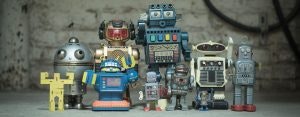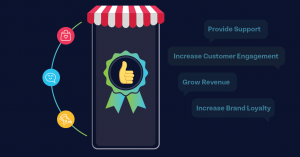
AI in music
Artificial intelligence is set to be the most ground-breaking technology of the 21st century. But when most people think of artificial intelligence, they think of machines performing complex tasks that will eventually steal their jobs. While artificial intelligence does have its place in manufacturing and industry, it’s also got an entirely different side: creativity. Recently, some Sony programmers managed to use artificial intelligence to compose a piece of music based on one of Bach’s symphonies. The greatest compliment to artificial intelligence is that listeners struggled to differentiate between what was original and what was created by a machine. This is the sort of world that the future holds. What does this mean for music composition and how is AI affecting the music industry in general?
Ed Newton-Rex, the founder of a UK-based company that uses machines to composes music, says this of how the technology progressed, “It started when I asked myself if computers were capable of writing and making music. I thought they’d be able to and wondered if not, then when? My girlfriend at the time was studying computer science and I sat in one of her introductory lectures before realizing that it might actually be doable.”
The young entrepreneur then built a prototype – a very basic algorithm – that piqued the interest of Cambridge University’s investment arm. Now, his company Jukedeck has raised some $3.1 million to support the work that they’re doing.
The idea of music through AI was sparked in the 1950s when Lejaren Hiller and Leonard Isaacson used artificial intelligence to create the Iliac Suite – the world’s first piece of music composed by a computer. It was a reasonably good piece of music for its time. And, since then music composition has been an ongoing artificial intelligence project.
Artificial intelligence and the role of deep learning
The technology now is based on deep learning algorithms that use reinforcement learning to develop. Deep learning is effectively analyzing and processing information that moves between various input and output devices. It’s loosely based on the human brain’s neural structure and seeks to mimic this functionality. This allows the artificial intelligence to see a reasonably abstract thing in the form of data, such as patterns in a melody.
They have managed to ‘teach’ their artificially intelligent program to understand music composition by reading through a large database of classical music written by some of the most famous composers of all time. Their program can capture greater concepts of musical theory just through analysis of existing musical works.
Artificial intelligence composing sheet music
After listening to large amounts of music and learning its models of music, the AI can compose its sheet music which can be played by professional artists on real instruments to achieve the best possible sound.
For now, classical music is the most popular form of music to recreate as it's the most widely used for commercial purposes – that is the likes of backtracks in adverts and trailer soundtracks. The future of AI and music will be a little broader.
What are the challenges for AI creating music?
According to Newton-Rex the main challenge for creative AI, particularly when it comes to writing music, is trying to replicate the taste. There’s no right or wrong way of doing it. In other industries, machines can pick up patterns and train algorithms by evaluating the results. But with music, this just doesn’t work. What’s good music for one, isn’t good music for another. There’s no universal standard by which music can be applied.
It’s also about composition. For example, the most iconic brands have a distinct sound. It’s what makes them unique. Trying to recreate these unique sounds that make this music so successful and enjoyable is the next challenge for AI to crack in the hopes of one day reaching human-level performance. The musicians at Jukedeck are working tirelessly on training their system’s taste and composition skills towards this end.
If you’re interested in how artificial intelligence is changing the world, one industry at a time, read our articles on the effect Amazon Go is having on retail. It outlines some of the fears around whether artificial intelligence will take over the jobs of us ordinary folk.
Explore other articles
Step into the future of business messaging.
SMS and two-way channels, automation, call center integration, payments - do it all with Clickatell's Chat Commerce platform.








